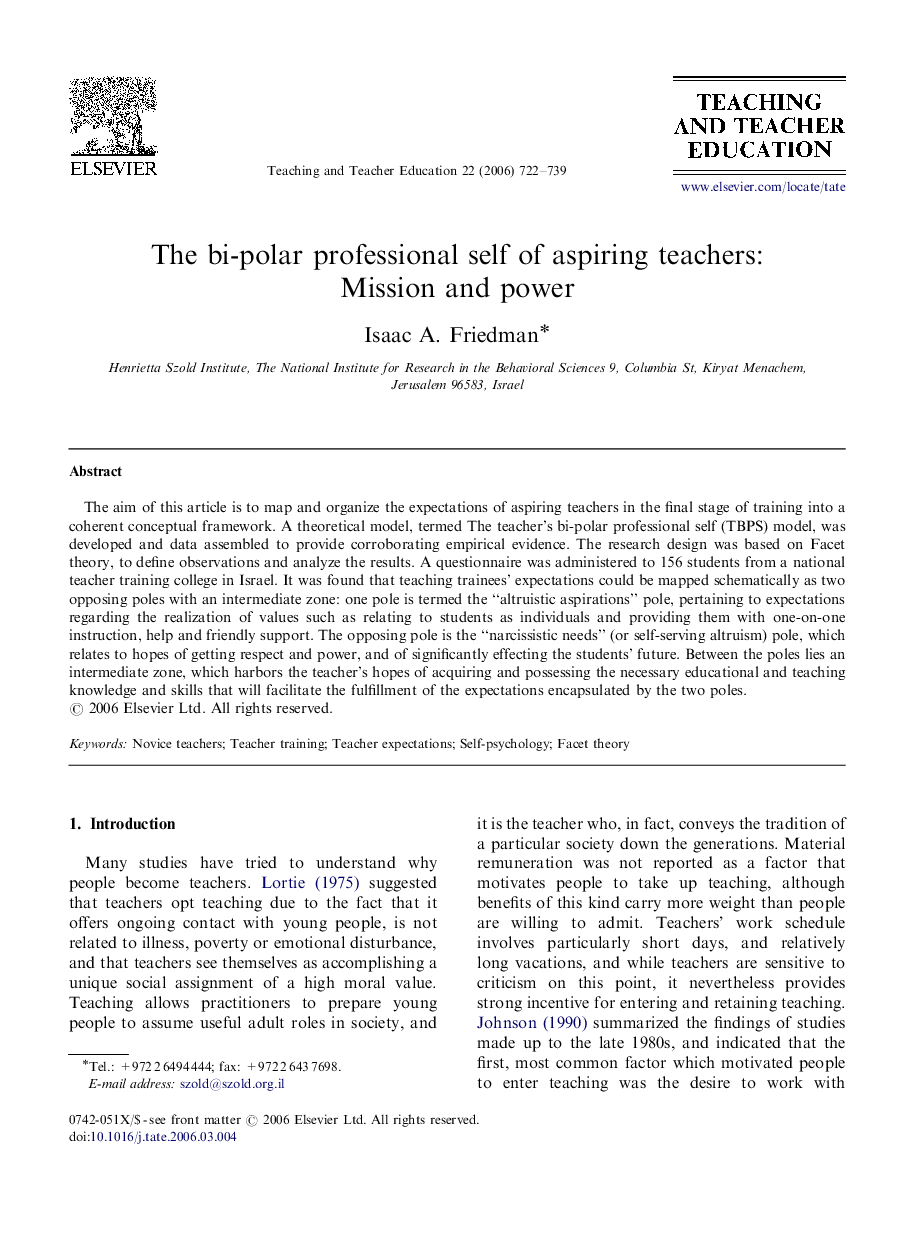| Article ID | Journal | Published Year | Pages | File Type |
|---|---|---|---|---|
| 374988 | Teaching and Teacher Education | 2006 | 18 Pages |
The aim of this article is to map and organize the expectations of aspiring teachers in the final stage of training into a coherent conceptual framework. A theoretical model, termed The teacher's bi-polar professional self (TBPS) model, was developed and data assembled to provide corroborating empirical evidence. The research design was based on Facet theory, to define observations and analyze the results. A questionnaire was administered to 156 students from a national teacher training college in Israel. It was found that teaching trainees’ expectations could be mapped schematically as two opposing poles with an intermediate zone: one pole is termed the “altruistic aspirations” pole, pertaining to expectations regarding the realization of values such as relating to students as individuals and providing them with one-on-one instruction, help and friendly support. The opposing pole is the “narcissistic needs” (or self-serving altruism) pole, which relates to hopes of getting respect and power, and of significantly effecting the students’ future. Between the poles lies an intermediate zone, which harbors the teacher's hopes of acquiring and possessing the necessary educational and teaching knowledge and skills that will facilitate the fulfillment of the expectations encapsulated by the two poles.
